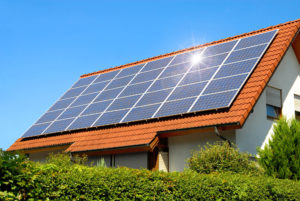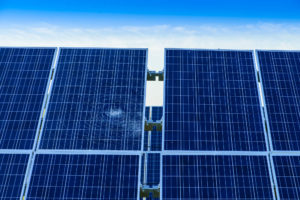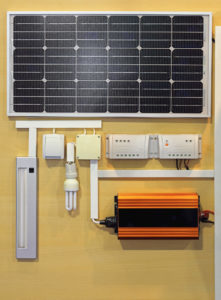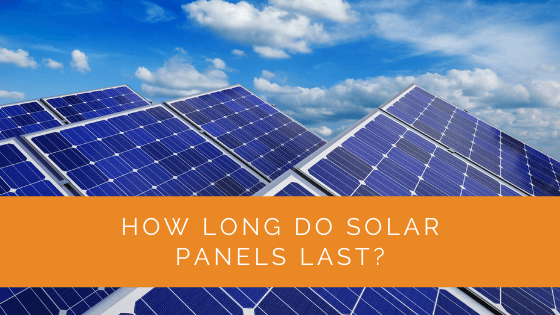When investing in something sustainable like solar panels, the most significant query is their durability. Solar panels are meant to last for years, if not a couple of decades. However, this life expectancy depends on how you use the panels and whether you invest in their maintenance.
Over the last few years, installation costs have also significantly decreased. It makes solar panels exceptionally accessible, further promoting green energy use. If you are apprehensive about the lifespan of solar panels, you can always trust the warranties they come with, too!
Continue reading to learn more about how long solar panels last and how you can improve their lifespan.
Contents
- 1 Key Takeaways
- 2 What Is the Life Expectancy of Solar Panels?
- 3 What Is Solar Panel Degradation?
- 4 How Are Solar Panels Degraded?
- 5 How to Improve the Life Expectancy of A Solar Panel System?
- 6 Case Study: Enhancing the Longevity of Solar Panel Systems
- 7 Expert Insights From Our Solar Panel Installers About How Long Do Solar Panels Last
- 8 Discover the Power of Solar with Solar Panels Network
- 9 To Conclude With
Key Takeaways
- The life expectancy of solar panels can vary from 5 to 50 years depending on factors like maintenance, quality, and exposure to environmental elements.
- Solar panel degradation, which occurs at an average rate of 0.5% per year, can affect their efficiency, and regular maintenance can help mitigate this.
- To improve the life expectancy of your solar panel system, replace components when necessary, invest in repairs and maintenance, keep the panels clean, and ensure proper drainage and secure installation to protect against environmental factors.
What Is the Life Expectancy of Solar Panels?
A solar panel system can last anywhere between 5 and 25 years. The average lifespan of a solar system is 20 to 25 years. The latest solar panels on the market have an expected lifespan of 40 to 50 years. However, many factors define and influence the amount of time it takes for your solar panels to give in.
Naturally, solar panels last longer if they are taken care of. While you may not have control over every natural factor affecting solar panels’ life expectancy, you can take precautionary steps.
You can reduce the degradation rate of your solar panels by performing regular maintenance checks and repairs.
One of the significant reasons solar panels can last you over 25 years is their design. Most conventional solar panels have no moving parts and are not moved once installed stationarily. This reduces the chances of physical damage and helps cut repairs and maintenance costs.
On the other hand, solar trackers are prone to more mechanical damage, thus reducing their life expectancy.
A few high-quality solar panels can also last up to 50 years, provided you look after them adequately. You can also make your solar panels last by preventing physical damage.

What Is Solar Panel Degradation?
As the name suggests, solar panel degradation refers to the reduction in the efficiency of solar panels over time. In most solar panel systems, the rate at which electricity production decreases yearly is standard.
On average, the solar panel degradation rate is 0.5% per year. This level of degradation is standard in almost all types of panels. However, if you fail to look after your solar system, this degradation rate is bound to increase exponentially.
So, what does a 0.5% degradation rate mean? Your solar system will lose about 0.5% of its efficiency every year. So, the year you install it, your system will run at approximately 100% efficiency but decrease to 99.5% after one year.
The amount of electricity your solar system generates will be affected, along with how fast it converts solar radiation to usable forms of electricity. You must remember that 0.5% is just an average figure.
If you do not look after your solar panel system, this percentage could shoot up, degrading your panels at an alarming rate.
Even high-quality panels are not immune to this degradation. However, solar panel manufacturers provide their customers with good warranties.
Once installed, companies provide customers with warranties of about 25 years. By the end of this period, your panel is bound to have an efficiency rate of about 87%, as solar panels lose about 13% of the total.
How Are Solar Panels Degraded?
So, what causes solar panels to degrade? There could be a wide range of external factors that could affect the general mechanism of the panel, including the photovoltaic cells.
You generally install solar panels on the roofs of your homes or establishments. This gives your panels much-needed exposure to sunlight.
However, it also comes with exposure to degrading factors like snow, hail, water, wind, etc.
The influence of such factors can degrade the outer materials of the solar panel.

Scorching Heat
When the sun is too bright and falls directly on your panels for prolonged periods, it could cause cracks on its surface. These cracks need to be tended to immediately, or they will reduce energy production than you previously expected.
Moreover, these cracks allow moisture to enter the body of the solar panels, further accelerating the degradation rate in your panel system.
Heavy Rainfall and Water-Logging
Waterlogging is a considerable concern when it comes to solar panels. If you live in a region where heavy rains are expected year-round, you might want to ensure proper water drainage around your panels.
Irrespective of whether your panels are on the roof or in your backyard, proper drainage will prevent water from entering the body of the panels.
Ensure the frame is secure and no water enters through cracks on the surface of the panel systems.
Snow
Areas experiencing extreme weather conditions can expect significant solar panel degradation over the years.
Snowstorms are a significant cause of reduced energy production. Places that receive heavy snowfall expect a massive reduction in their actual output.
Temperatures below freezing can cause cracks, broken frames, warping, etc. In such conditions, solar panels do not produce enough energy using solar power, a renewable energy source.
Fallen Debris
Keep your solar panel clean and remove all debris from its surface frequently. Fallen debris can cover the solar panels’ surface and reduce energy production. Degradation rates are also higher in panels installed near trees.
Solar energy absorbed by panels depends on the surface area exposed to the sun. The more your panels are covered in debris, the less solar energy they absorb and convert.
Fast Winds
Solar panels installed on roofs of tall buildings can fall prey to fast winds. Strong winds can weaken the structural integrity of your panel system. Solar panels last longer if they are securely fixed to their positions throughout their lifespan.
Panel degradation rate is higher when the body of solar panels is not intact and moves too much in the wind. Your solar panels will also have trouble absorbing solar power with the same intensity.
How to Improve the Life Expectancy of A Solar Panel System?
You can add decades to your solar panel’s life by taking the necessary precautions. Extend their life to 25 to 30 years from just ten or 20 years.
Check Your Inverters
Your inverters will never last as long as your solar panels do. It would be best to replace your inverters as soon as they start to give you any trouble.
The average warranty you get from solar panel manufacturers on inverters is ten years, after which they start malfunctioning.
If your inverter is faulty, it will take your solar panels down and cause even more problems than you anticipated.
Replace Panels or Batteries Whenever Necessary
To protect your entire solar panel system from damage and degradation rates, replace parts as and when required. This holds for the batteries you use, too.
Solar batteries must be charged frequently to avoid running out on you. You can alternate batteries to make sure that they last long enough.
Moreover, you can also opt for low-resistance, chargeable batteries. Frequently replacing batteries can help with producing electricity and enhance energy output.

Invest in Repairs and Maintenance
Make sure you keep enough funds aside to invest in repairs and maintenance. This type of investment is crucial because it can help extend your panel’s life to 25 years or more.
Many solar panel providers give their customers free regular checks and repair assistance.
The installer can check on your panels to see if they efficiently produce energy.
Keep Your Panels Clean
Keeping your panels clean is the best way to ensure they are efficient. The quality of the panel does not matter if you fail to clean your panels regularly. You can contact your provider for professional help, or you could even do it yourself!
Case Study: Enhancing the Longevity of Solar Panel Systems
Background
At Solar Panels Network, we pride ourselves on providing durable and efficient solar solutions tailored to our customers’ unique needs. A critical aspect of our service is educating clients on the factors affecting the lifespan of solar panels and implementing strategies to maximise their longevity. This case study showcases our approach with a residential project in the South East of England, focusing on enhancing the life expectancy of the solar panel system through strategic maintenance and proactive care.
Project Overview
Our client, a homeowner keen on reducing their carbon footprint and energy bills, sought a reliable solar panel system with a long lifespan. The client was concerned about the potential degradation of the panels and wanted assurances regarding the system’s durability and efficiency over time. Our task was to design a system that not only met their energy needs but also incorporated measures to ensure sustained performance over the years.
Implementation
- Comprehensive Assessment: We conducted a detailed site evaluation, considering factors such as roof orientation, shading, and local weather patterns to optimise panel placement.
- High-Quality Panel Selection: We selected monocrystalline panels known for their higher efficiency and lower degradation rates, ensuring a robust energy output over the long term.
- System Configuration and Installation: The system was configured to include high-quality inverters and batteries, with easy access for future maintenance and upgrades.
- Maintenance Plan: A proactive maintenance schedule was established, including:
- Regular Cleaning: Scheduled professional cleaning to remove debris and maximise sunlight absorption.
- Component Checks: Routine inspections of inverters and battery systems to prevent potential malfunctions.
- Environmental Monitoring: Continuous monitoring of environmental conditions and system performance to identify and mitigate any degradation factors early.
Results
- Extended Lifespan: The careful selection of materials and proactive maintenance resulted in a significant extension of the system’s expected lifespan, with projections indicating sustained efficiency well beyond 25 years.
- Consistent Performance: The client experienced minimal efficiency loss, maintaining high energy production levels throughout the year, even during less optimal weather conditions.
- Enhanced Energy Independence: The robust system setup reduced the client’s dependence on the grid, ensuring reliable energy supply and substantial savings on electricity bills.
- Client Satisfaction: The client expressed high satisfaction with the system’s performance and the comprehensive support provided, highlighting the value of the maintenance plan in preserving the system’s efficiency.
Summary
This case study demonstrates Solar Panels Network’s commitment to delivering long-lasting, efficient solar panel systems. By focusing on quality components and proactive maintenance, we ensured our client’s system provided consistent energy output and longevity. This approach not only maximised the client’s return on investment but also contributed to a sustainable and eco-friendly energy solution.
Expert Insights From Our Solar Panel Installers About How Long Do Solar Panels Last
Solar panels are a long-term investment that, with proper care and maintenance, can serve you efficiently for decades. Regular cleaning and timely inspections are key to ensuring they operate at optimal efficiency.
Lead Solar Installer
One common misconception is that solar panels will degrade quickly. In reality, high-quality panels only lose about 0.5% efficiency per year, meaning they can still produce a substantial amount of energy even after 25 years.
Solar Energy Consultant
Replacing components like inverters and batteries as needed is crucial to maintaining the overall system’s performance. These small but significant steps can greatly extend the lifespan of your solar panels.
Senior Solar Technician
Discover the Power of Solar with Solar Panels Network
Are you navigating the world of solar installations? Look no further than Solar Panels Network, the UK’s trusted partner in harnessing the sun’s potential. Our dedication goes beyond just installations; we’re on a mission to transform how homeowners and businesses across the UK perceive and utilise energy. By choosing us, you’re reducing your carbon footprint and making a smart financial move that promises savings for years ahead. Contact us today and embark on your solar journey.
To Conclude With
Solar panels can easily last 30 years or more if you learn how to look after them. Manufacturers and solar panel providers can only go so far as to give you their best quality products. However, ultimately, how you maintain these systems is up to you!
Make sure you take all the advice and create a sustainable solar panel system for yourself!
About the Author
Solar Panels Network stands at the forefront of solar energy solutions, driven by a team of seasoned solar engineers and energy consultants. With over decades of experience in delivering high-quality solar installations and maintenance, we are committed to promoting sustainable energy through customer-centric, tailored solutions. Our articles reflect this commitment, crafted collaboratively by experts to provide accurate, up-to-date insights into solar technology, ensuring our readers are well-informed and empowered in their solar energy decisions.

